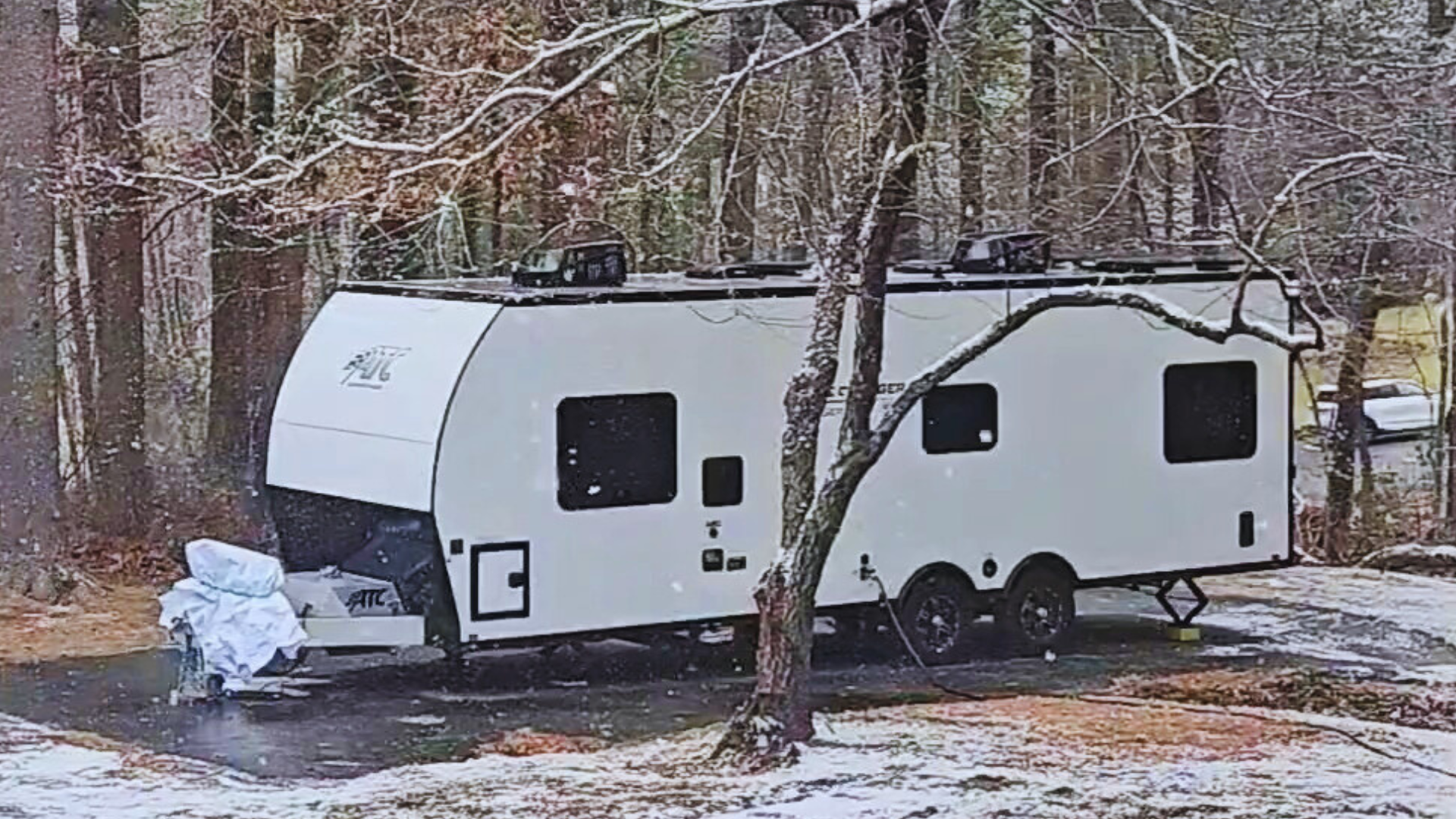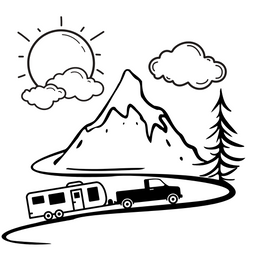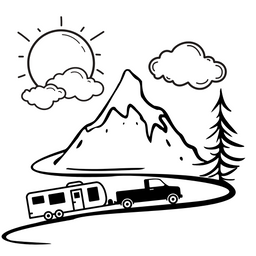This was our RV's worst winter. Here's what we learned.
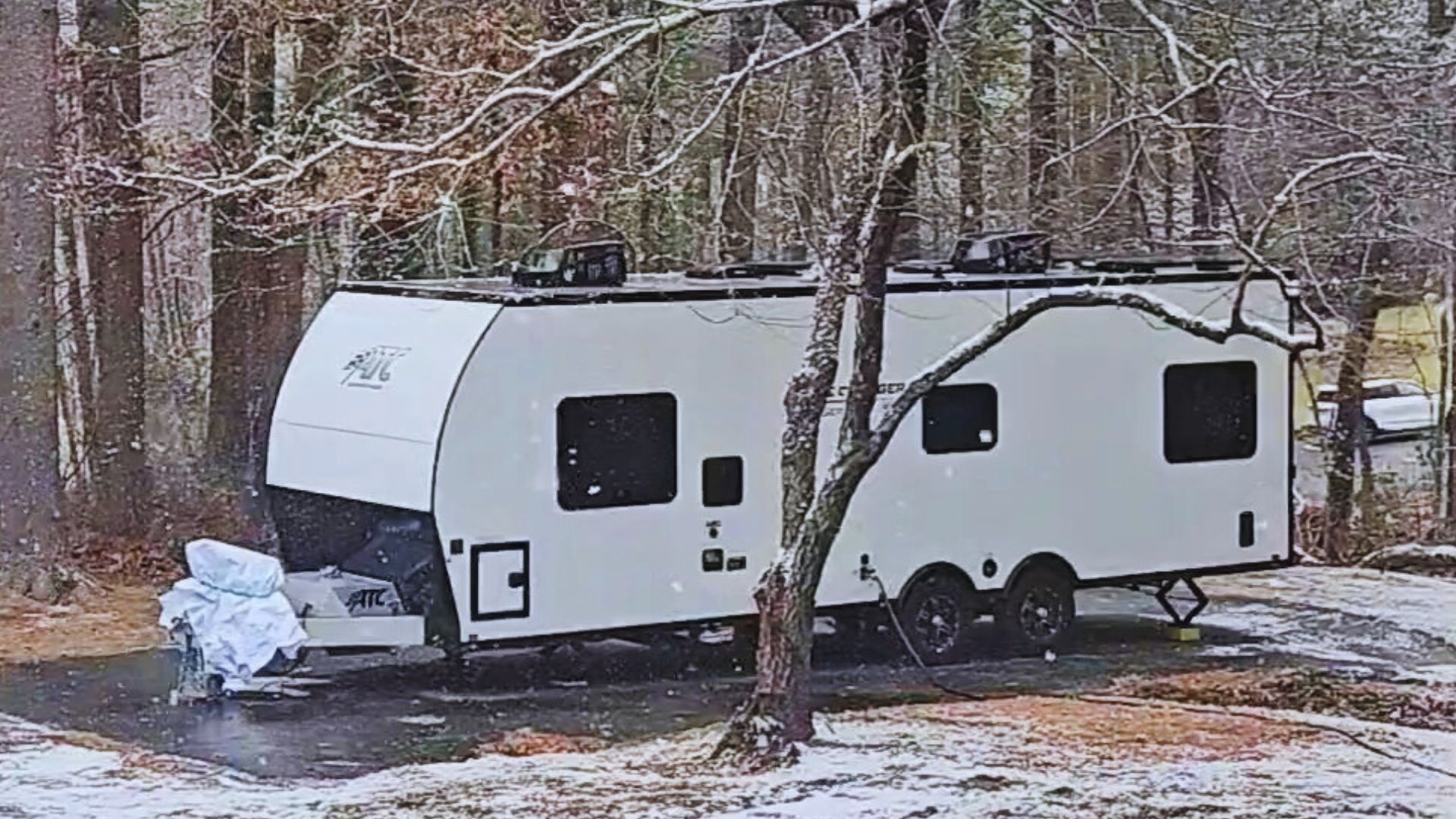
This post contains Amazon affiliate links. We may receive a small commission for qualifying items purchased through these links, at no extra cost to you. Thank you for using our links and helping to support our blog.
We first moved into our RV in the wintertime, and then proceeded to live stationary through the coldest months of the year in Massachusetts: January and February. In some ways, the experience gave us a crash course in winter camping. On the other hand, it may have given us a false sense of security, because the following winter, we decided to park back at our home-base in MA through the holidays. The next year, we did it again. And the year after that. When other RVers questioned this choice, we always said that as long as we get out by New Year's, we can typically avoid the brutal weather.
In retrospect, how much did we really learn during our first two months in the RV? We decided to winterize it because we were still unpacking and organizing, and therefore spending half our time inside Nicole's parents' house anyway. We didn't need to worry about freezing pipes and busted tank heaters. These issues held off until the following winter, December 2022.
We had just completed our first full year as RVers and were really comfortable living in our trailer. Therefore, we decided to continue living in it as we celebrated Thanksgiving and Christmas in New England. Things were going smoothly until two days before Christmas, when we woke up to a frozen fresh tank. Because we were still learning about our rig, we didn't think too much about how this might have happened. Temperatures hit below zero with even worse windchills. We had a fresh tank heater, but perhaps in such cold and windy weather, it just couldn't keep up. We had no easy way to monitor the energy draw of the heater.
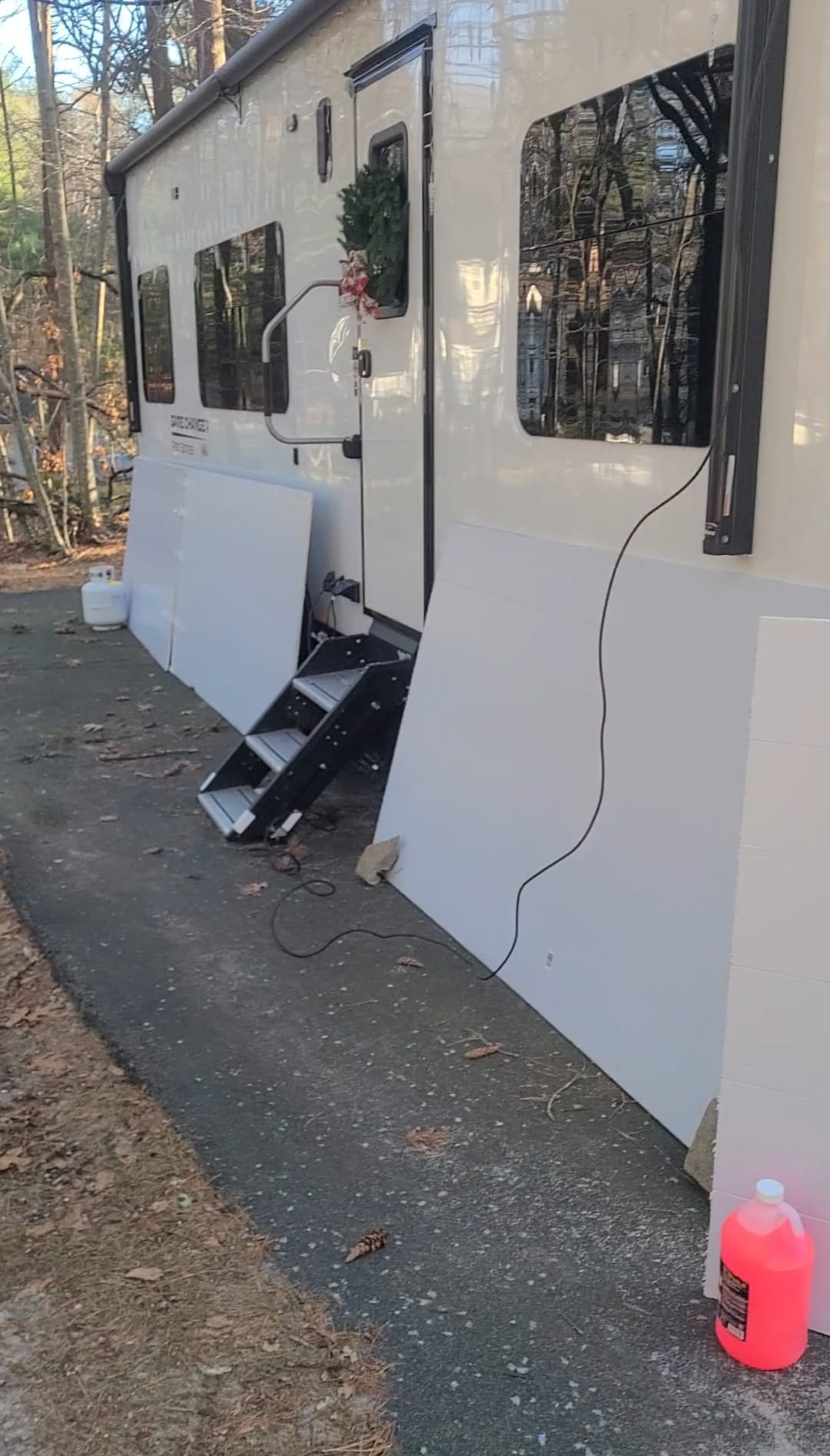
We first knew something was wrong with the fresh tank heater the following March when we were in Williams, AZ. A winter storm came in, and once again, our fresh tank froze. Between December and March, we had gotten solar installed, and along with it, a new panel for monitoring electric. We were able to test whether or not the fresh tank heater was working by comparing the electrical draw when the heater was on versus off. No change = no working fresh tank heater. This was when we concluded that it had actually been busted since at least that last December. Later in the year, we got the fresh tank heater replaced, and that was that.
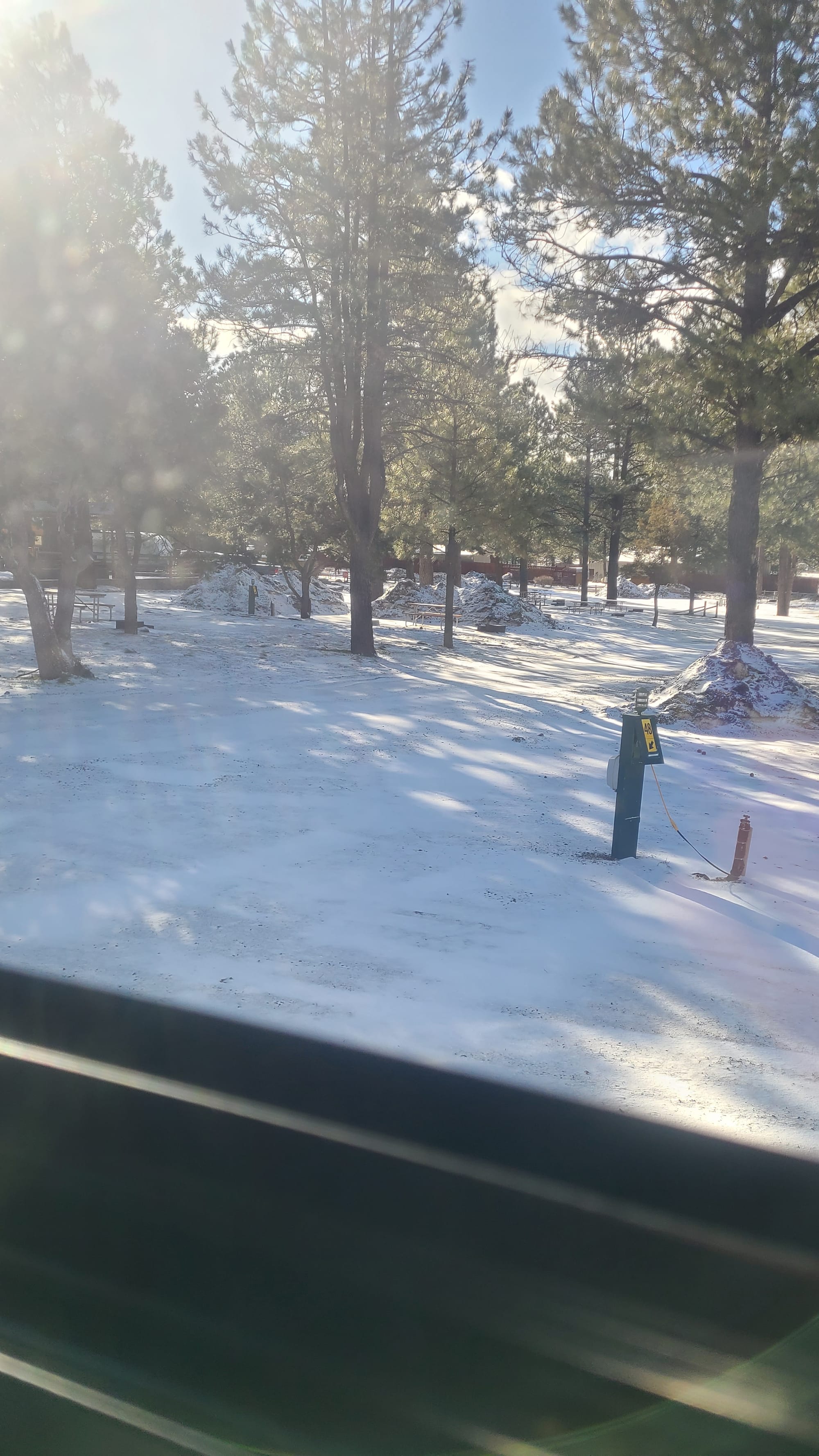
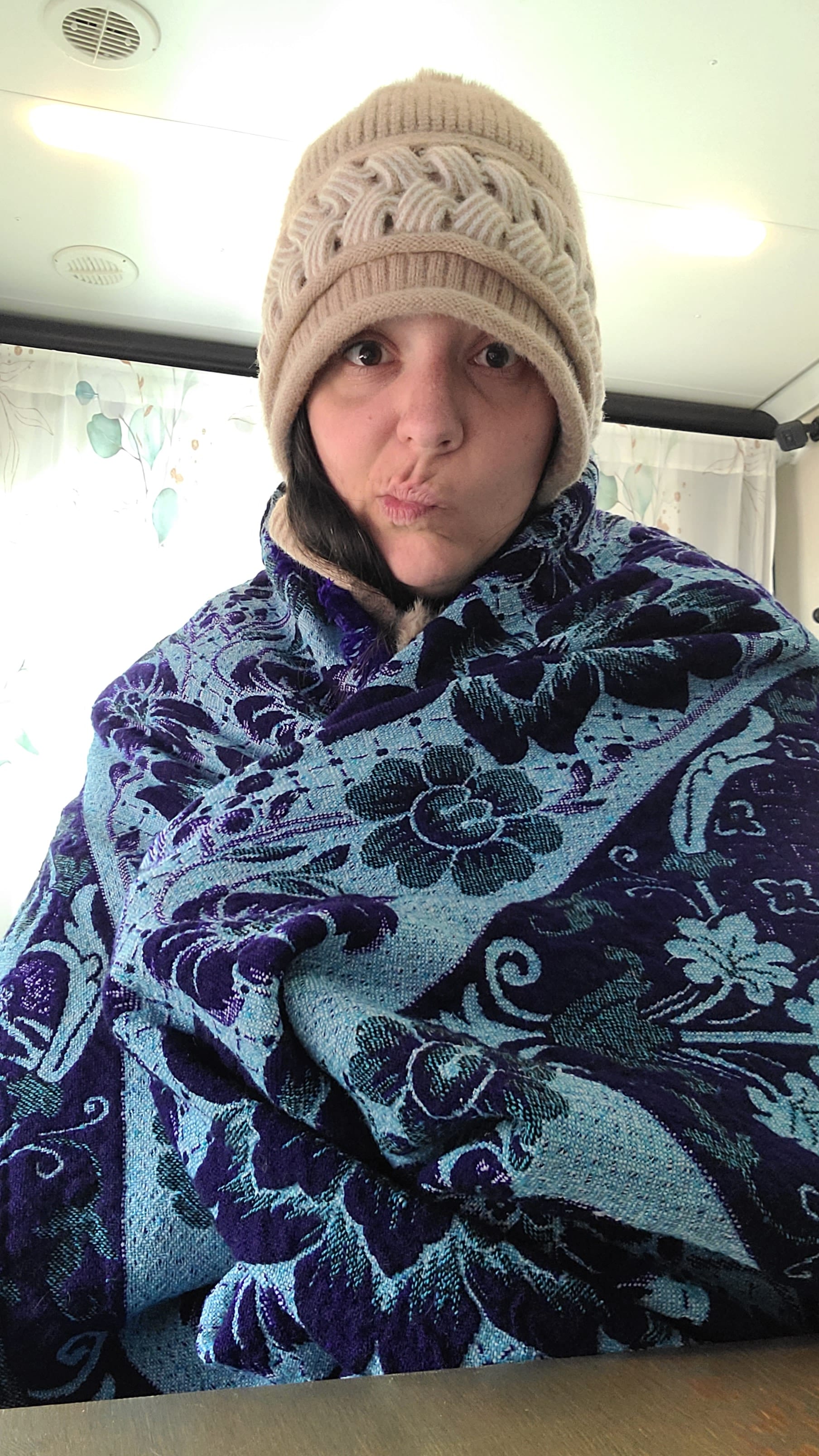
By this point, we had a list of precautions we always take when wintering through December in MA. However, there are many that we opt out of. We see the extents that many of our fellow RVers go to. They skirt their rig. They insulate all their windows and Max Air fans with Reflectix. They drain their water lines more often. Some even pour RV antifreeze into their tanks. We do none of that; we rely on our tank and line heaters. We never feel like losing our view out our windows, so we don't cover them to better insulate them. Besides our futile attempt to build a makeshift shirt that Christmas Eve in 2022, we've never skirted. And in 2023, we got through December unscathed.
Then came 2024. December started business as usual. The weather was fairly mild, but we prepared for the colder days by having extra propane and running our tank and line heaters. Our new addition to our winter setup was a pair of heated blankets for our propane cylinders, because we learned through lots of trial and error that propane pressure goes all out of whack in the cold weather. I wrote a whole blog post talking about this, not realizing I was missing a very important piece of the puzzle.
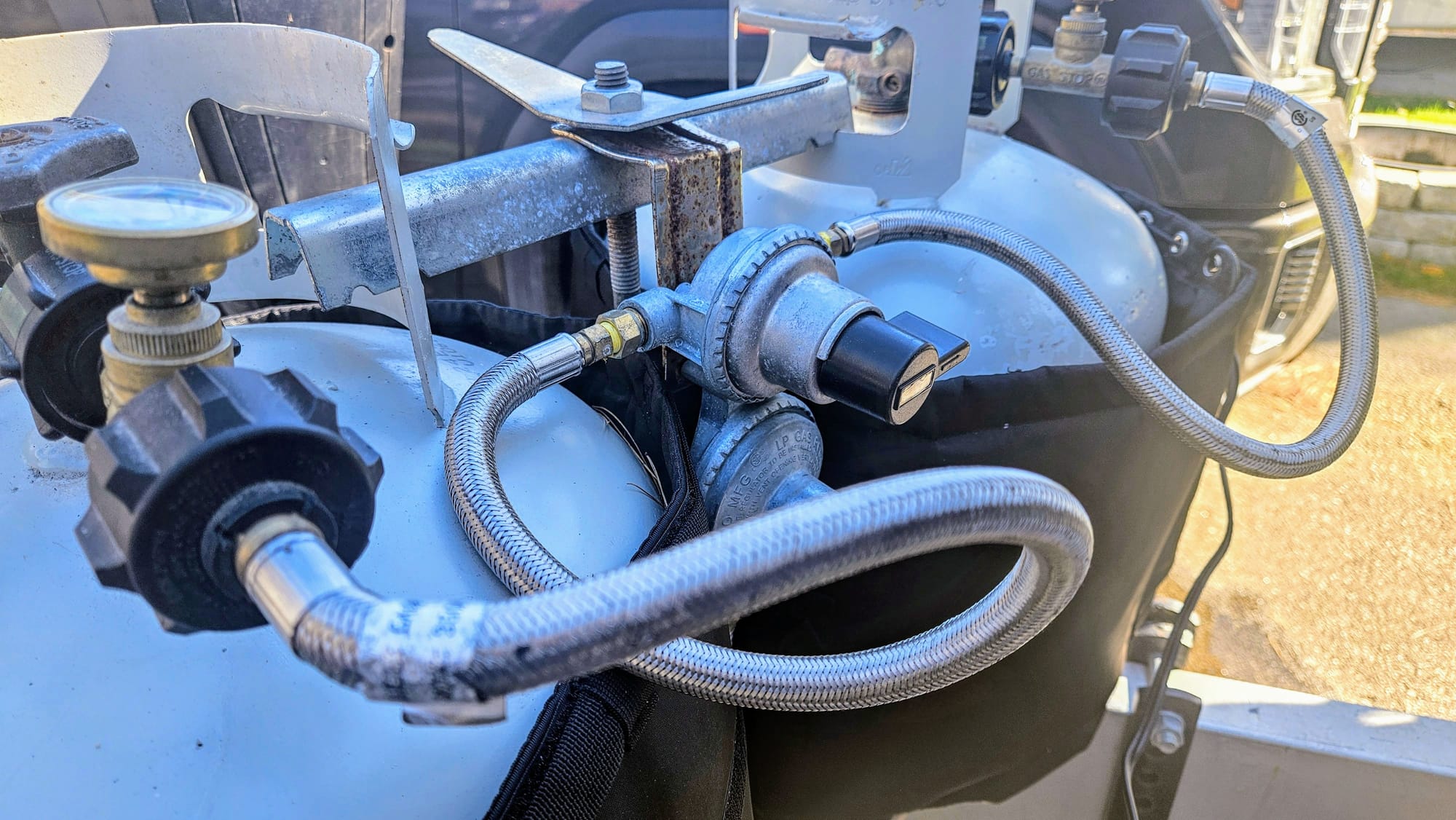
But before I get into that, let me give you the low-down on how December 2024 went from "fairly mild" to the worst winter our RV has ever experienced. After the passing of our cat Lily, Nicole and I decided to take Tanner for a getaway up in NH to regroup and go check on our land. The forecast wasn't looking too bad except for the final night, when temperatures would reach single digits. That would be our coldest night so far since we got back to MA. We weren't worried; we made sure our propane tanks were full and we kept our line and tank heaters on. They operate on a thermostat, so they will automatically turn on when they need to as long as we flip their switches. I also kept an eye on the temperature inside the rig through our WIFI monitor, to make sure the heat was still running properly. On the night of the big temperature drop, everything was looking good, and so we assumed nothing would change before we got back the following day.
Upon our return, we walked into our rig and were welcomed by cold air. The inside temperature was 30°F. How did things take a turn so quickly? I checked the propane and noticed that the regulator didn't switch over from the empty tank to the full one. Ah, the regulator. I talked about replacing our original one in this blog post, when we spent months trying to deduce why our furnace wasn't working. Since then, I had replaced it yet again when a piece broke on the second regulator. So yes, this was our third regulator, and it wasn't regulating. And yes, because the temperatures dropped so low, our water lines froze. Because no heat was coming into the rig, the tank and line heaters weren't enough.
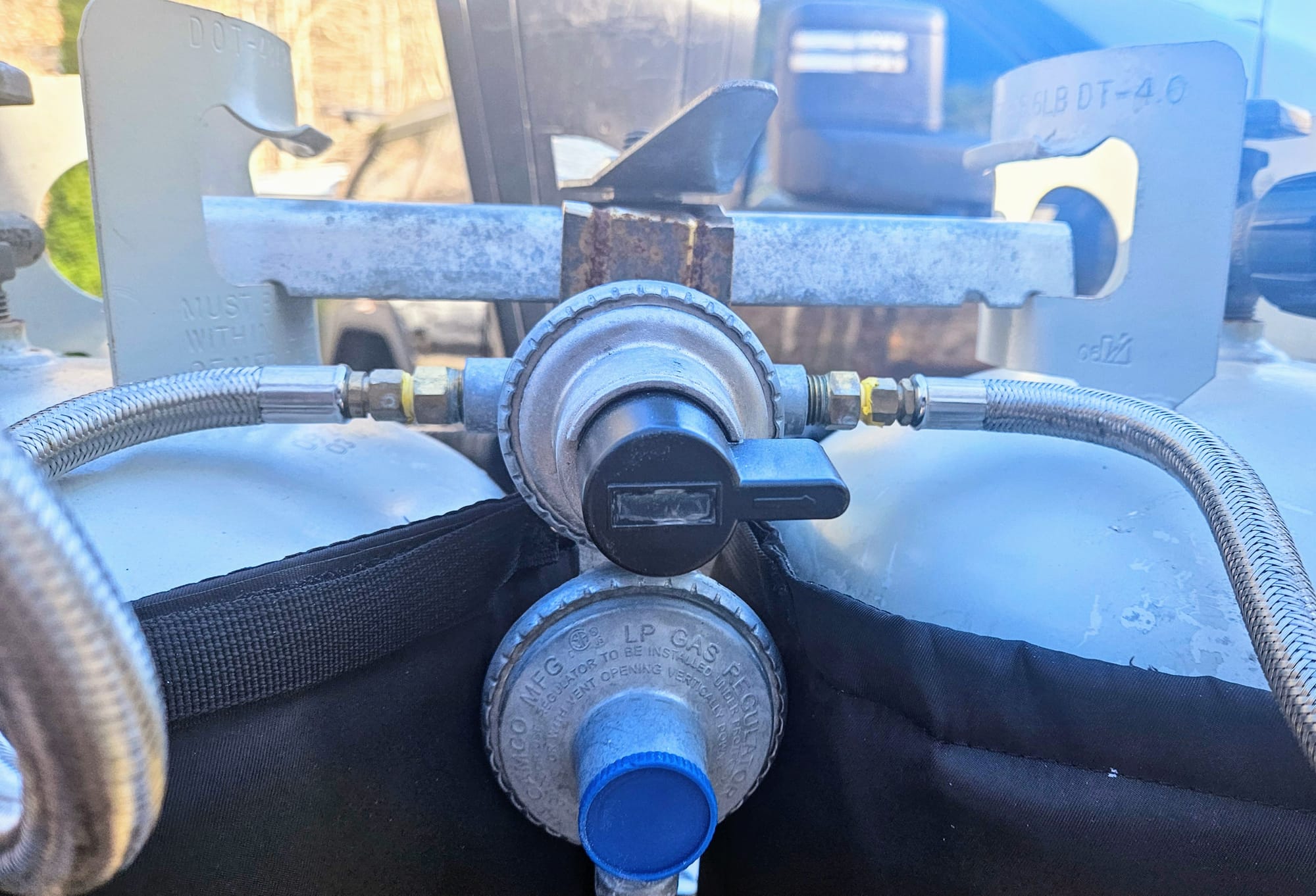
We needed to wait for the thaw before we could figure out what damage had been done, if any. Thankfully, our plumbing seemed fine, but we did have two casualties: Our water pump and our tankless water heater. Both fairly easy replacements, and then we'd be good to go, right?
Not exactly. Just when we got running water back in the RV, more cold hit, and our fresh tank froze, just like it did in 2022. Sure enough, the tank heater wasn't drawing power. We're guessing it went on the fritz on the same cold night that everything else froze, but it didn't totally die until a few days later. Time to get replacement tank heaters.
The problem with the tank heaters, though, is that they adhere to the tank, which is attached underneath the trailer and exposed to the elements. When it's too cold out, the heaters won't stick. I bought two sets of heaters. One would need to be wired to our switches on our panel inside the rig, but I found others that operate on 120V, so I could just stick them on and plug them in without wiring them. This was my interim solution, just to thaw the tank out. I still had the problem with them not adhering, but since they were temporary anyway, I stuck them on with duct tape. It was enough to get running water back in the rig. We weren't sure when we'd be able to get the other set on, but looking at the forecast, it was going to be a while.
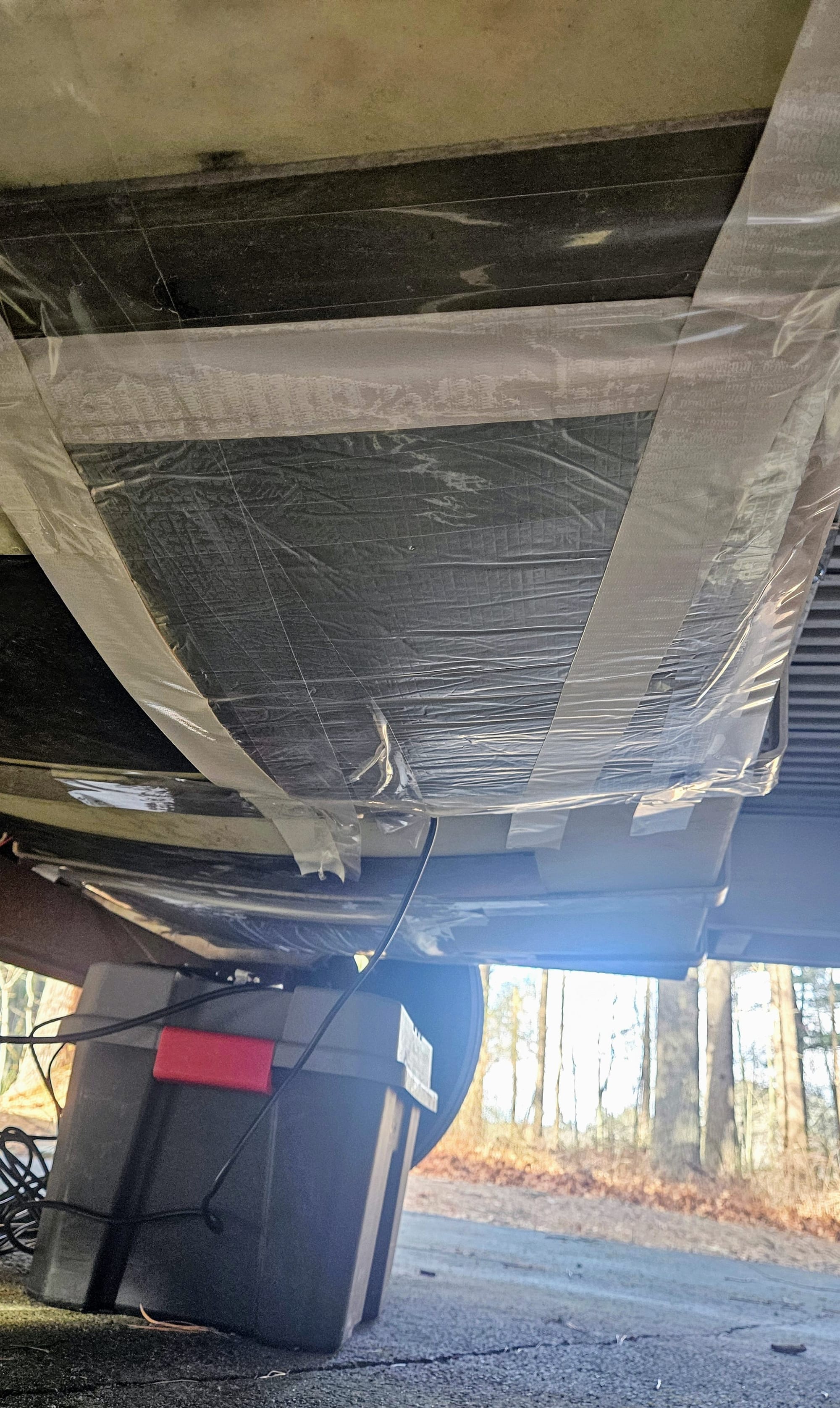
We weren't in much of a rush. We had lots of other repairs that hadn't gotten done yet, plus we were still healing from our sad and difficult December. We made the decision to delay our launch back on the road, which was initially supposed to be on December 29. We knew we were taking a risk because as soon as January hits, all bets are off with the weather, but at that point, we had heat and we had running water. With those essentials, we got to work tackling the giant pile of other repairs, or at least the ones necessary for getting back on the road. It was slow, but progress was being made little by little.
Then, a couple nights later, we noticed that the furnace wasn't pumping as much heat into the rig as it should. Soon after, we started hearing funny noises. Soon after that, no more propane. Not to the heating ducts, not to the water heater, not to the stove. If this story sounds familiar, that's because it is.
Related posts:
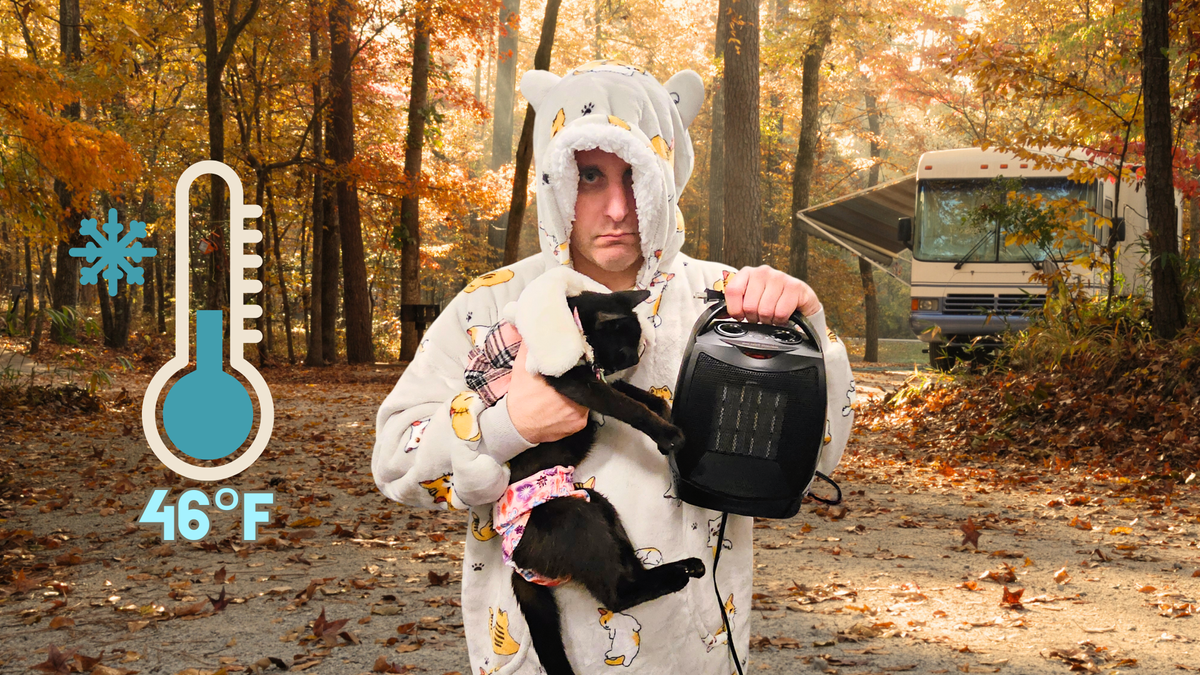
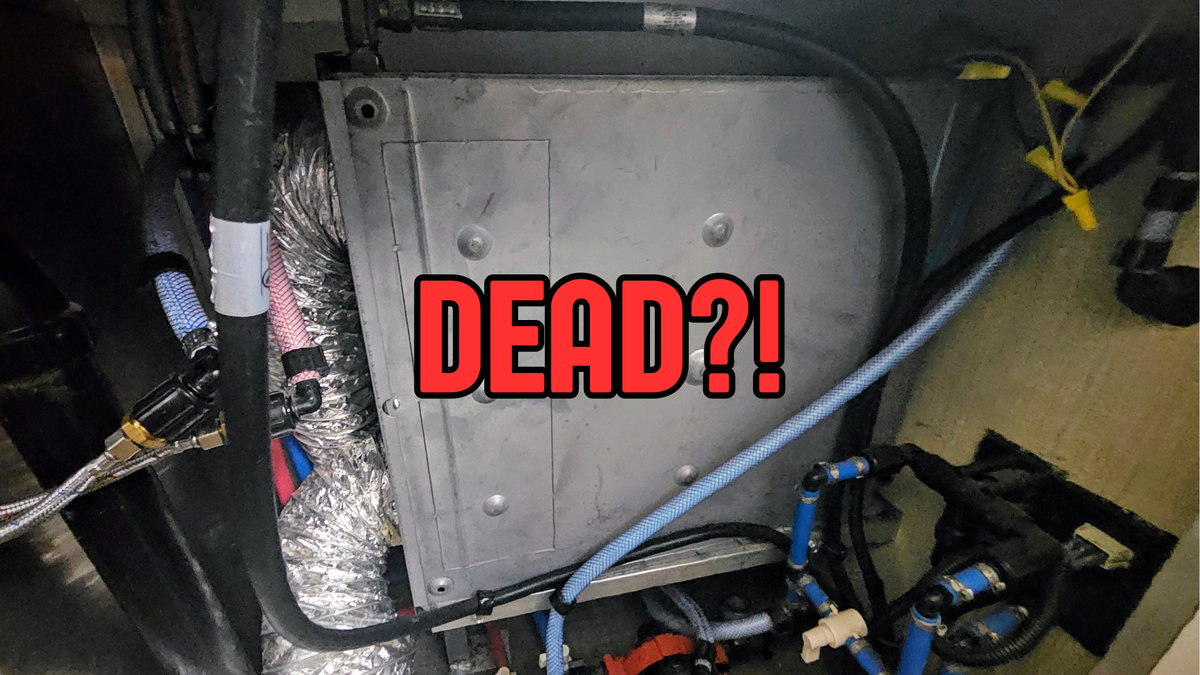
This time, though, we could safely assume the regulator was the culprit. We know it hadn't done a successful changeover the night we were in NH. I also noticed that manually turning the changeover knob was way tougher than it should be. It felt very stiff and made a popping sound when I turned it. I was already starting down the path to get it replaced, contacting Camco, the makers of the regulator, and just in case we needed it, getting a replacement through Amazon Prime. If you're keeping count, this would be our fourth regulator.
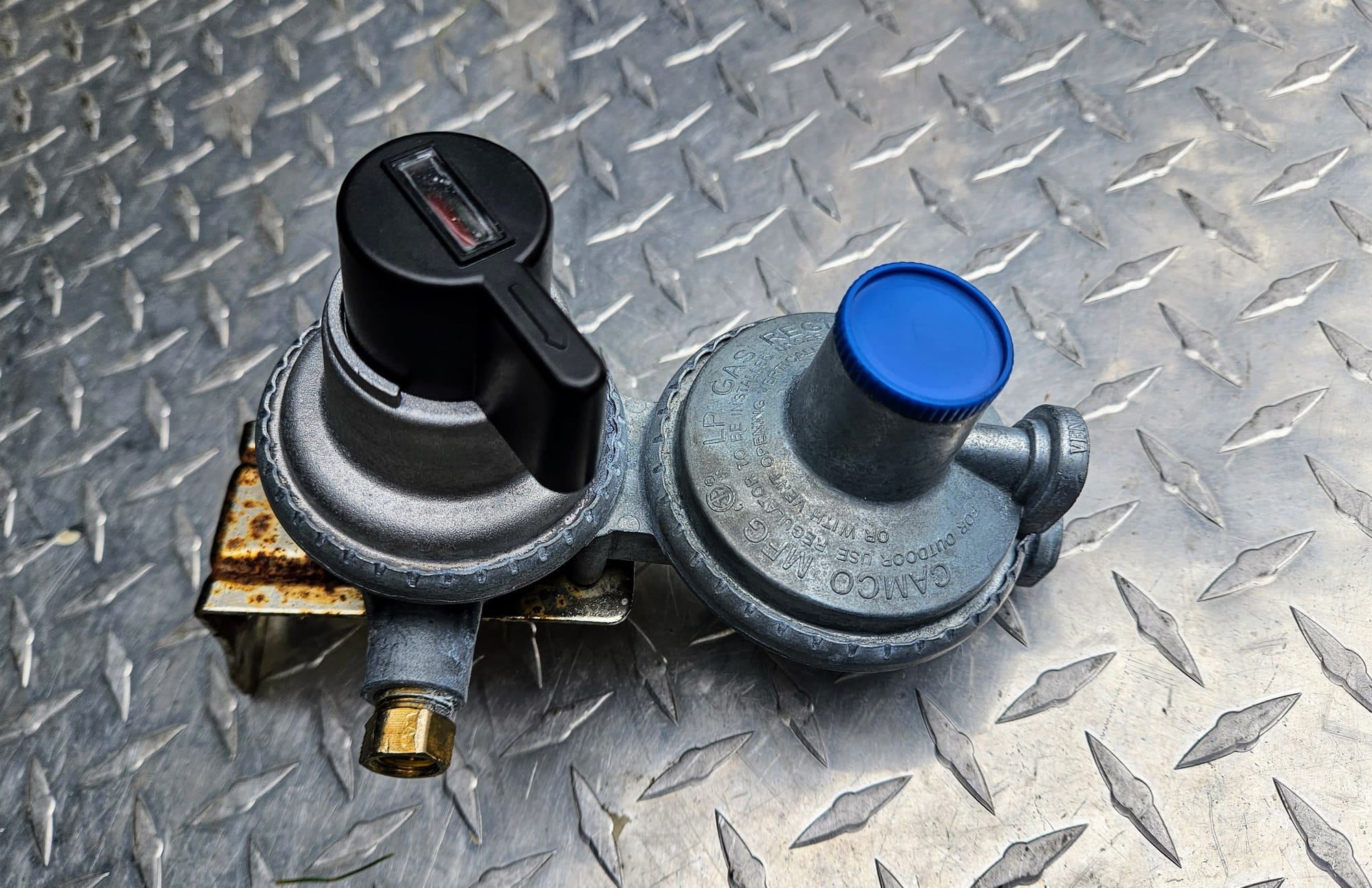
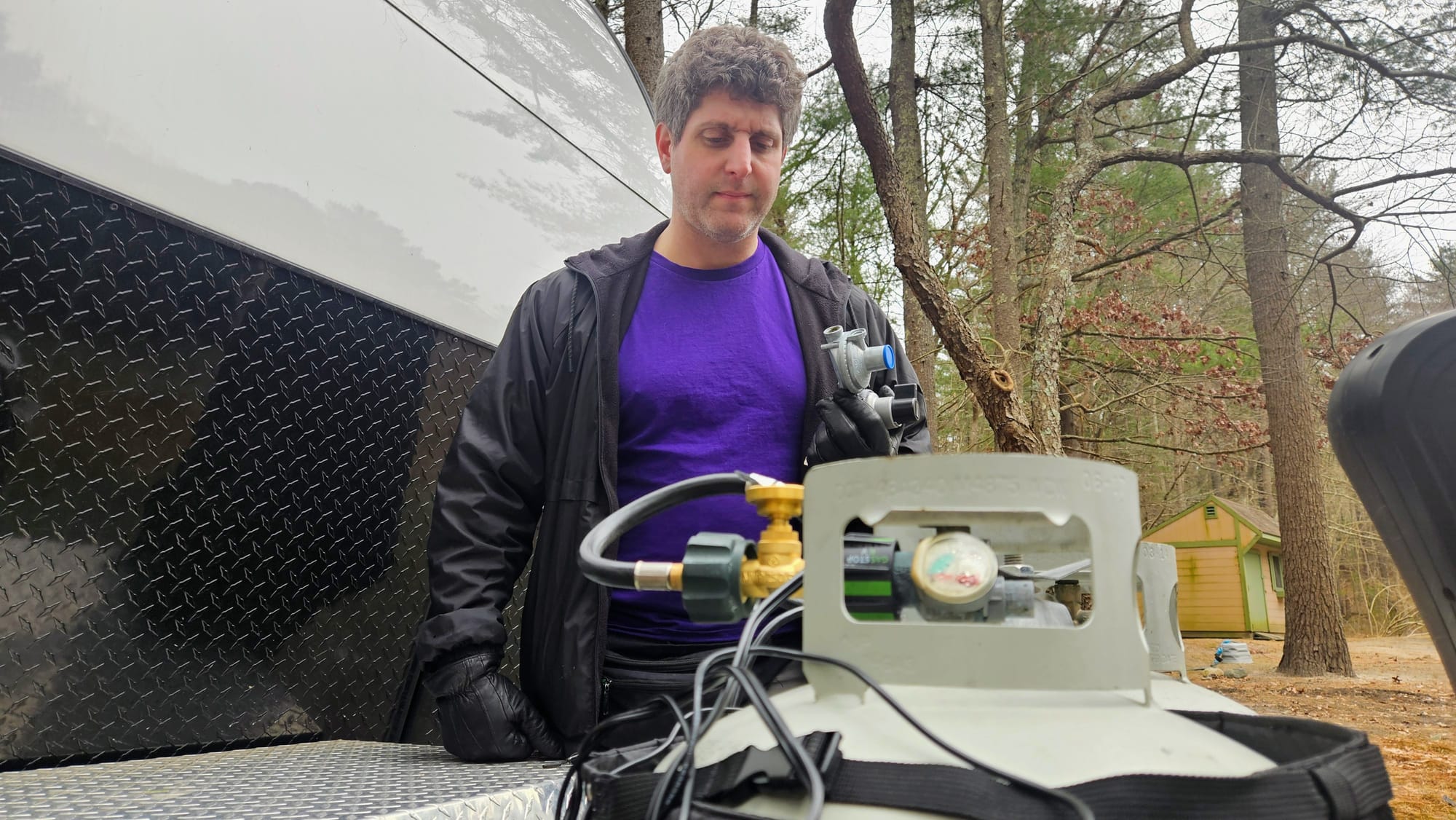
Camco is a reputable brand, and yet we were burning through regulators faster than the winter cold burns through our propane. Were we missing something? I racked my brain, trying to figure out why we kept having this issue now, and I realized that there was one difference between this year and previous years. At first it seems insignificant, but turns out, I uncovered a big problem.
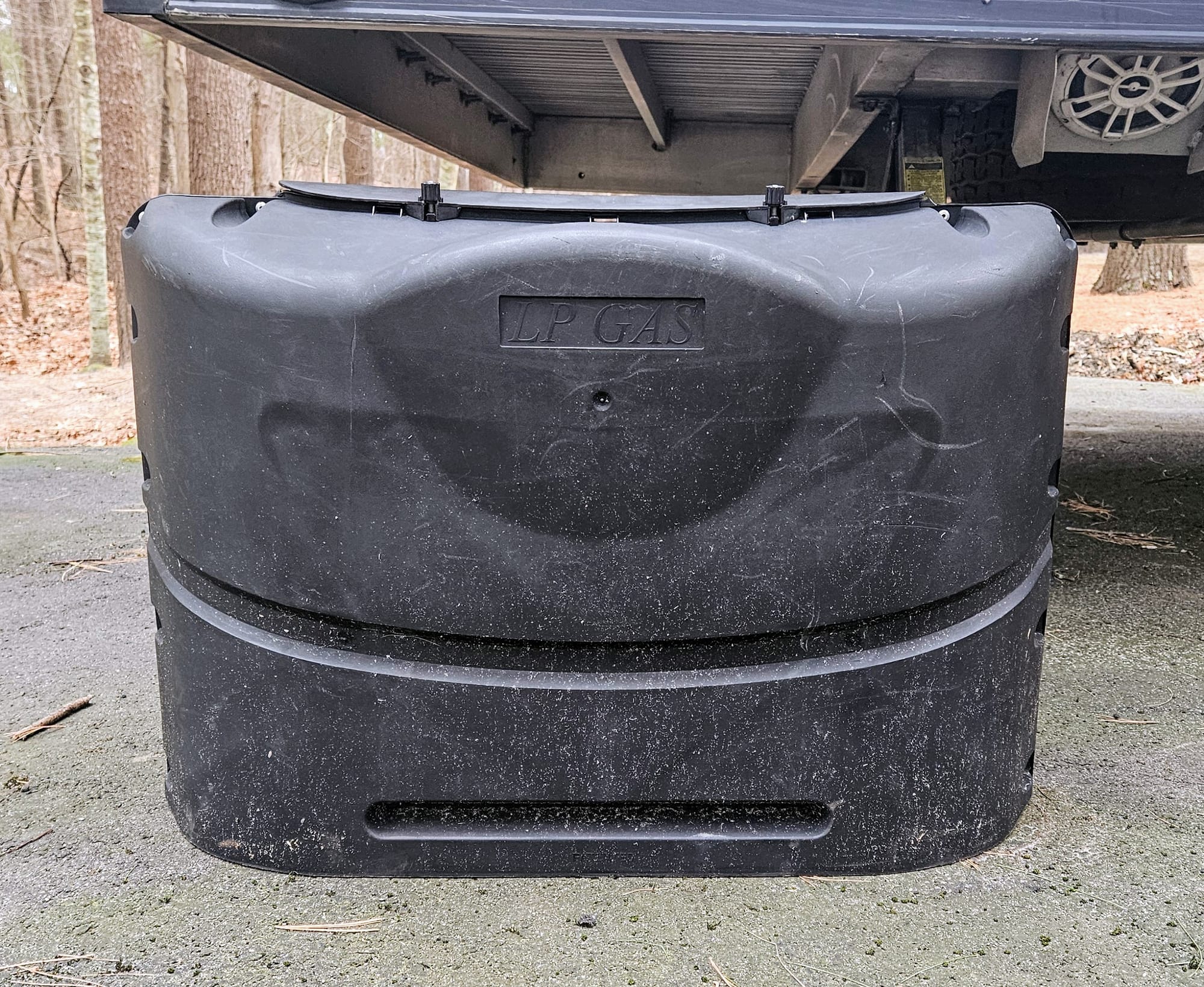
The propane tank cover. The big, plastic, black monstrosity that most people on most forums say is only for aesthetics, when in fact, it's so much more than that. This brings me back to the blog where my naive self gave all of you fine people tips for getting your propane to work best in cold temperatures. Back to the heated blankets, which overall were a fantastic addition to our winter camping setup. Only, they're too bulky for me to fit the cover on top of them, and so I've been leaving the cover off. What happens when the cover's off? The tanks themselves may be snuggled in their warm blankets, but the regulator itself is exposed to the elements. With regulator #3, the temperature change caused from the warm propane flowing into the cold regulator was a possible reason for the weakening and eventual breakage of the piece. With regulator #4, my best guess is that moisture got inside of it and it froze. Is it possible this one was still defective? Absolutely. It didn't seem right from the beginning. But either way, my next task was to find a way to insulate and protect the new regulator.
Despite the overwhelming response in the RV community saying that the propane tank covers don't do anything, one company seems to have gotten the memo, because you can actually buy a heated tank cover that goes over both the tanks and the regulator. However, it'll cost ya. Instead, I decided to go with a simple tarp. It may look like a stooped-over corpse in a body bag sitting on our trailer tongue, but we're not looking for aesthetics here. We just want to heat our RV! And maybe next October, it can double as a Halloween decoration.
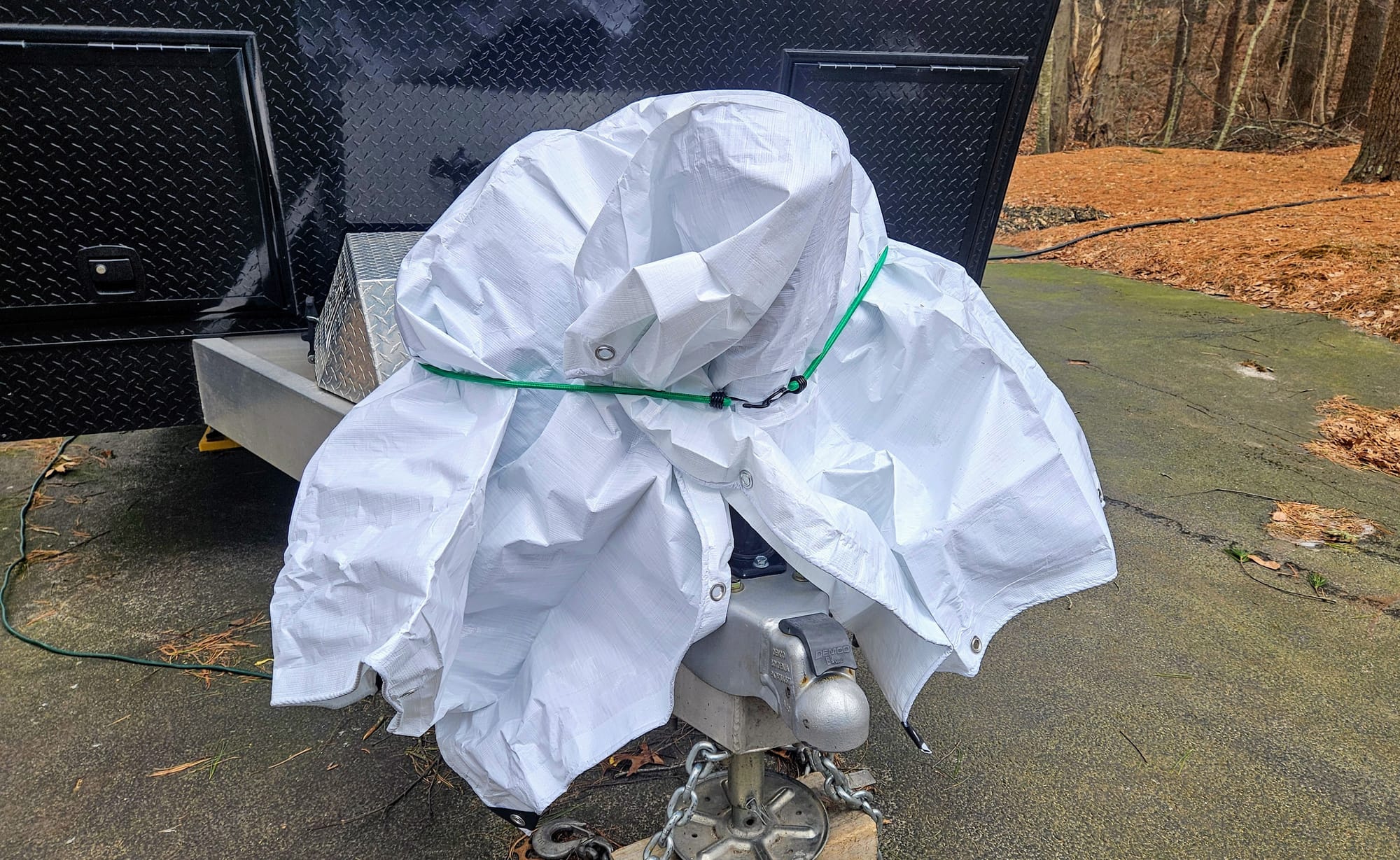
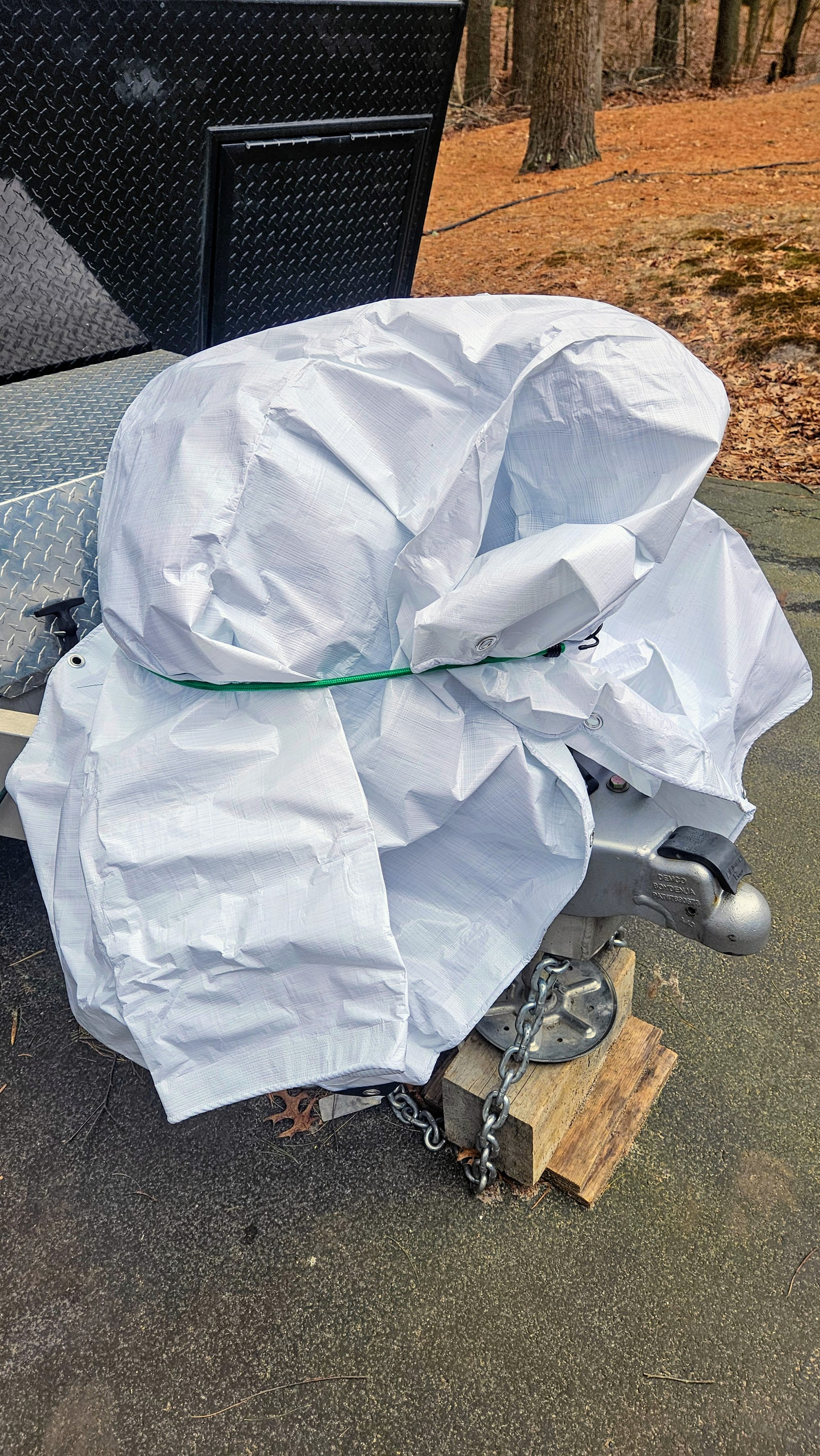
So let this be an extra long addendum to that earlier blog post that says, "Use those heated blankets...but don't neglect your regulator."
We got away with 3 years of winging it winter-style, and this year we're paying the price. If we're smart, next holiday season we'll show up with a skirt on the RV, Reflectix in the windows, and a back-up propane regular, just in case. The truth is, we can't predict the New England weather, and we should always be prepared for setbacks that cause delays in our plan to launch back out at the end of December. Thankfully, we have our heat back and the furnace seems to be working. Unfortunately, our regulator issue started a domino effect, and we still had a long way to go before we had all our essentials back in the rig. The saga continues in the next blog post.
